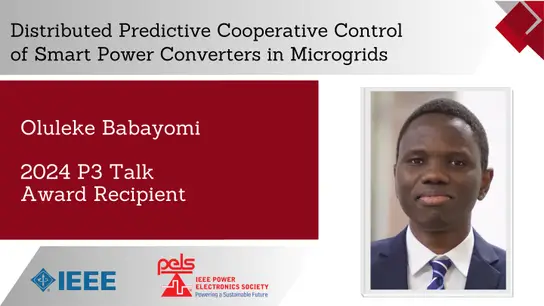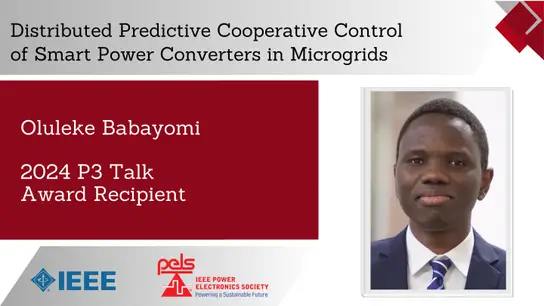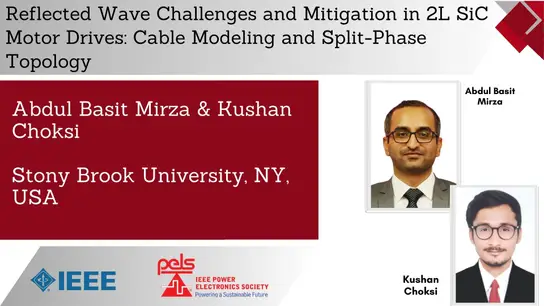Online Pedagogical Resources on Control and Tuning Methods in Switched Mode Power Converters-Slides
Santanu Kapat
-
Members: FreePELS
IEEE Members: $8.00
Non-members: $12.00Pages/Slides: 49
13 Dec 2021
Abstract: Switch mode power converters (SMPCs) play the central role in energy-efficient power conversion in emerging applications, such as electric vehicles, data centres, renewable energy, industrial automation, etc. In this context, selection of suitable modulation and control techniques of SMPCs is very important to meet challenging requirements in terms of transient performance, efficiency, stability, line and load regulation, disturbance rejection, etc. Majority of commercial controller implementations are still based on pulse width modulation and small-signal analysis. However, increasing switching frequencies using wide band-gap devices provides the opportunity to improve dynamic performance, energy efficiency and size reduction. This talk presents large-signal based control and tuning methods in existing current and voltage mode control methods, which can significantly improve performance along with improved energy efficiency in SMPCs under fixed and variable frequency modulators. Moreover, it is important to understand existing modulation, control, and tuning methods in SMPCs, to identify practical limits using small-signal based design and to formulate control and tuning methods using large-signal based approaches to achieve performance up to the slew rate limits.
Keeping this in mind, this talk will introduce a new online course which (i) presents an overview of conventional modulation and control methods, (ii) identifies small-signal performance limits, (iii) discusses large-signal based control approaches and (iv) compares strategies for controller tuning. Comparison among tuning methods illustrate how large-signal based control tuning methods can significantly improve performance and efficiency of SMPCs followed by the need for digital and mixed-signal control implementation for future power electronics converters.
Keeping this in mind, this talk will introduce a new online course which (i) presents an overview of conventional modulation and control methods, (ii) identifies small-signal performance limits, (iii) discusses large-signal based control approaches and (iv) compares strategies for controller tuning. Comparison among tuning methods illustrate how large-signal based control tuning methods can significantly improve performance and efficiency of SMPCs followed by the need for digital and mixed-signal control implementation for future power electronics converters.
Primary Committee:
PELS


